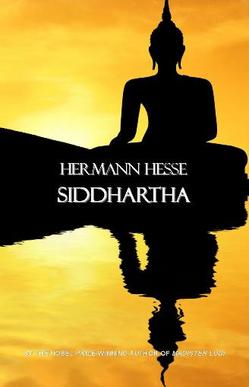This Week's Recommended Read: “Siddhartha” by Hermann Hesse

Hesse's "Siddhartha" offers a quick read that is full of meaning.

We follow the path of Siddhartha, the son of a Brahmin. Early on, he realizes that he has learned all he can from his community and is moved to join the Samanas, a group of wandering ascetics who have renounced the material world and travel from town to town begging for their basic sustenance. Siddhartha and his dear friend Govinda learn to repress the Self through the Samana’s teachings.
Still not having obtained enlightenment, they seek out traveling religious leader Gotama. Govinda is convinced by the Buddha’s teachings, but Siddhartha is not. He travels to a town where he meets courtesan Kamala. In this new place, Siddhartha learns much about the art of pleasure and gains a great deal of material wealth through his work as a merchant. He spends years in this state, but realizes he is slowly moving away from his intended destination. Once again Siddhartha leaves to seek out a new path; he takes up with a humble ferryman named Vasudeva.
This is not the end of Siddhartha’s journey. Hesse does a fantastic job of bringing his story full circle, making sure that all issues are resolved as poetically as possible. Ultimately our hero does find what he seeks. He does not reach enlightenment through the teachings of the Brahmins, the Samanas or the Buddha, though they all play a role in his eventual success. It is the simple ferryman whose teachings are the most perceptive to Siddhartha—all life’s lessons can be learned by studying the peaceful, powerful river. For those of you who wanted to know the bumper sticker version: Everyone’s path is his own, who’s to say they don’t all lead to the same destination?
You may like this book if…you are looking for a very short read; you are acquainted with or interested in Eastern spirituality; you have a grounding in Christian imagery (this novel was informed, in part, by Hesse’s own upbringing as the child of missionaries); you enjoy folklore or fables; you too are a seeker of enlightenment; you love a story that comes full circle with every detail meaning something important; you would like to explore a world that is so very different from your own; you want to learn some cool new Sanskrit words; you like what the bumper sticker says. You may not like this book if…you don’t want to read a tale of Eastern spirituality written by someone outside of the culture; you are a bumper sticker cynic. Melissa LR Handa is the founder and organizer for the Ann Arbor Classics Book Group and the Lead Books Contributor for AnnArbor.com. Her goal is to make classic literature more accessible to the everyday reader.

